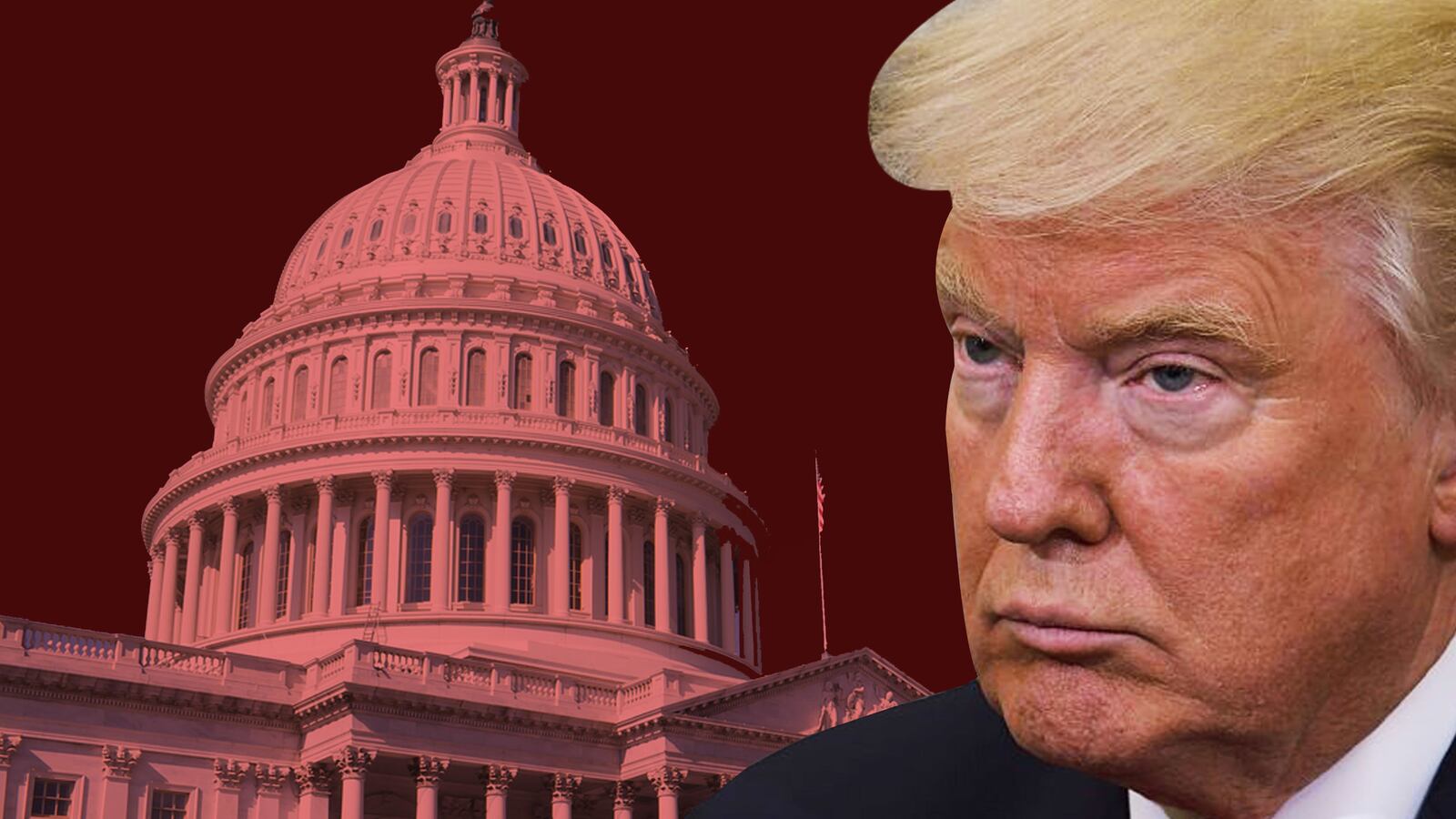What is happening in America right now is not normal.
It is not normal that a presidential candidate with no prior government or military experience, who unambiguously and repeatedly vowed to violate the Constitution should he be elected president, will soon become commander in chief of the nation’s armed forces.
It is not normal that an individual helming a vast family business empire with holdings domestic and international will soon be in a position to use the instruments of the world’s most powerful government to enrich himself and his kin.
It is not normal that the preferred candidate of conspiracy theorists like radio host Alex Jones will soon have access to the nation’s top secrets. Eight years ago, the only presidential candidate willing to talk to Jones was Ron Paul, whose wacky and paranoid newsletters now seem quaint considering that America just elected as president a man who claimed that his predecessor is not a natural-born U.S. citizen and “founded” ISIS.
And yet here we are being told to act like all of this is normal. That the voters who willed this unmitigated disaster into being have legitimate grievances and that their collective decision must be respected. While the democratic expression of the American people should of course be respected, that does not make it respectable. To use an analogy to which our insult-strewing president-elect can relate: I refuse to put lipstick on this pig.
We’re hearing a lot these days about how this election result represents a “backlash” to left-wing political correctness gone berserk. There’s no question that many self-described liberals patronize ex-urban and rural Americans. But the call for empathy goes both ways. If it were African-Americans overwhelmingly voting for a black demagogue who bragged about “grabbin’ pussy” (imagine that!), called upon his followers to assassinate his opponent, and asked the Russians to hack her email, would we be treating this hypothetical phenomenon with even one-tenth the amount of sympathy and understanding we’re being asked to confer upon Trump voters? Or would we pathologize it as the result of fatherlessness in the black community, the pernicious influence of rap music, and other self-inflicted ills?
To comprehend what the electorate has just done, consider that 63 percent of Americans believe Donald Trump lacks the temperament to be president, yet 20 percent of those people voted for him anyway. Figures such as this leave one asking: What sort of man would Trump have to be for his supporters—and those rationalizing their decision as deriving from anything other than ignorance, racism, and misogyny—to conclude that he is not fit to serve as president of the United States?
Would he have to be a sexual predator? A sociopath? A mountebank? What if he were the willing instrument of a subversion operation mounted by a hostile foreign power?
Because all of those things are true of the man who will be swearing the oath of office on Jan. 20.
If the old conventional wisdom about Trump was that his campaign was little more than a fusion of white backlash and celebrity, the newly emergent conventional wisdom is that he articulates legitimate grievances that the media and political “elites” ignored. No post-election analysis better expresses the prevailing sentiments of self-flagellation and overwrought humility than that published by my friend and former Daily Beast colleague Will Rahn, who wrote a widely circulated article assailing the media’s “unbearable smugness.” We Beltway journalists, he says, live in a bubble of our own devising that has left us woefully out-of-touch with the country we cover. “Tuesday night’s outcome was not a logic-driven rejection of a deeply flawed candidate named Clinton; no, it was a primal scream against fairness, equality, and progress,” he writes, mocking a stereotypically outraged liberal response to Trump’s victory.
Rahn is right about the media’s piss-poor predictive capacities. But the normative assessment about what last week’s election result forebodes is another story entirely. Rahn and many others seem to think it justified that people who feel condescended to by liberal elites would respond to this condescension by putting a demagogic clown in the White House (whereas I’m inclined to believe such spiteful behavior confirms the condescension). A common thread in all these media mea culpas is the author’s donning sackcloth and ashes, bowing and scraping before the masses. In the prolier-than-thou damning of its peers, this sort of elite anti-elitism, which is no less smug than the style of analysis it skewers, is itself a form of elitism. “See,” the journalist newly woke to the concerns of downscale, Middle American whites can say, “I am more in tune with the attitudes and plight of the common man than my oblivious, latte-sipping colleagues.”
Here’s the thing: Hillary Clinton was without question a “deeply flawed candidate,” as Rahn writes. The economy is not working as well as it should be for a large number of Americans. Our society is becoming increasingly stratified in all sorts of discomfiting ways. All of these things are true. And yet none of them justifies a vote for Donald Trump.
The temptation to do so, to normalize the very disturbing things that Trump’s election portends about our democracy and the fate of the world as we know it, is entirely understandable. It’s comforting to tell ourselves that, Trump’s eccentricities aside, everything will turn out OK in the end; that American democracy is resilient and has endured far worse events. This type of thinking is deeply American: liberal or conservative, we are a naturally optimistic people who assume our best days are ahead of us and that neither our country nor the world could ever revert to a darker past.
That assumption, however, rests upon a fetishization of popular will that assumes if a large enough number of people believe something, it must have some validity. The paradigmatic example of this reasoning’s erroneousness is Nazi Germany, where a movement that nearly destroyed Western civilization came to power democratically in one of the world’s most advanced societies. More recently, a large majority of Venezuelans voted into power Hugo Chavez, and now they’re rioting over toilet paper. Most people used to believe the Earth was flat. I have no doubt that within 40 years—if Trump doesn’t launch the Third World War he warned Clinton would plunge us into—we’ll look back on those who voted for him as the equivalent of flat-earthers.
No one would be happier than me if Donald Trump defies expectation and emerges as the next Harry Truman. Unlike a certain president-elect who corroded our democratic culture with baseless talk about the election being “rigged” and threatened not to respect the results, my vanity is not so great that I’d rather see the world burn than admit to being wrong about something.
But if Trump does somehow succeed as president, it will be because he governs utterly different from the way he campaigned. In which case, his supporters will not be able to claim any credit, as Trump will have proven himself not to be the man for whom they voted—a racist, misogynistic, authoritarian lapdog to Vladimir Putin.
And even in the best-case scenario, where he abjures the behavior and ideas that have characterized him for 70 years and governs as some sort of latter-day Rockefeller Republican, Trump would still have irreparably poisoned our democratic culture by moving it into a post-modern realm where words and actions have no meaning. Under his reign, America risks become the sort of place where, to cite the title of Peter Pomerantsev’s brilliant book about contemporary Russia, “nothing is true and everything is possible.”






